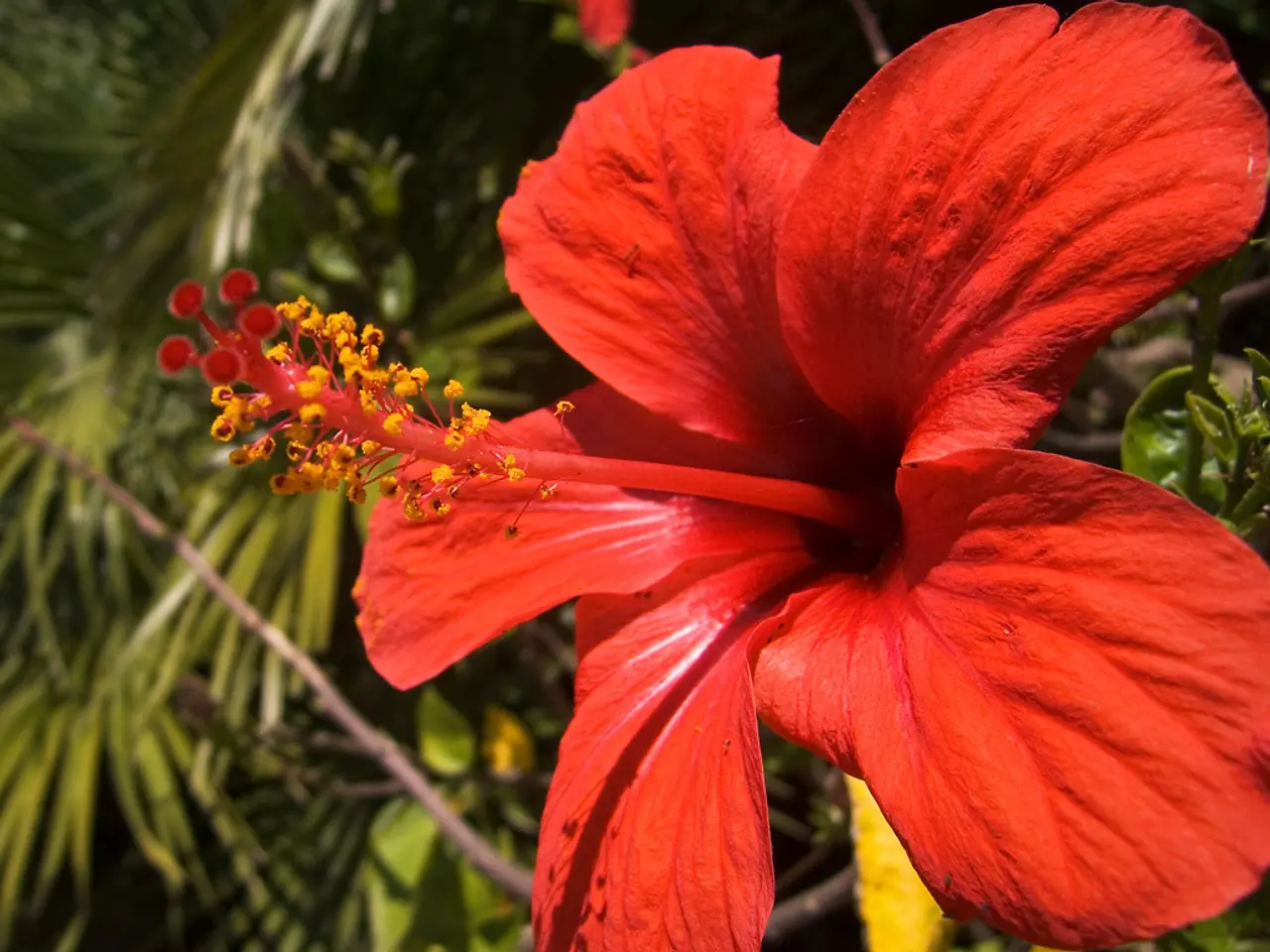Natural Beverages for Elevated Cholesterol: Prospective Advantages and Recommended Infusions
Herbal teas have been a popular beverage choice for centuries, not only for their comforting and soothing properties but also for their potential health benefits. One area of particular interest is their role in managing cholesterol levels.
Among the teas you listed, hibiscus tea stands out as the one with the most direct and supported scientific evidence for cholesterol management. Multiple clinical studies indicate that hibiscus tea can help reduce LDL (bad) cholesterol and triglycerides while increasing HDL (good) cholesterol [1][2][3]. For instance, a study with diabetic individuals who consumed hibiscus tea twice daily for a month showed significant improvements in cholesterol profiles [1][2]. Another clinical trial found that drinking 12 cups daily for 12 weeks led to an average reduction of about 9-10% in total cholesterol and LDL levels [2]. Hibiscus contains polyphenols, flavonoids, and antioxidants believed to contribute to these effects, also benefiting liver health, which is closely linked to cholesterol metabolism [1][3][4].
Green tea, derived from the Camellia sinensis plant, is another tea with potential benefits for cholesterol management. While green tea is widely studied for cardiovascular benefits and modest lipid improvements, the search results did not explicitly provide data on green tea’s direct effects on cholesterol management in this context. However, existing scientific literature generally supports green tea catechins in reducing LDL cholesterol and total cholesterol in some populations, though effects can vary [5].
The role of ginger tea, known for its health benefits, in cholesterol management is less established. Some studies suggest ginger extracts may have lipid-lowering properties, but robust clinical evidence for ginger tea specifically is limited [5].
Sage tea and turmeric tea did not yield direct clinical evidence for their effects on cholesterol management in the current search results. The impact of sage tea on cholesterol is less established in current research, and the search did not provide specific evidence on turmeric tea’s role in cholesterol control [5].
In addition to herbal teas, maintaining a moderate weight, regular exercise, and dietary adjustments can help manage cholesterol levels. Dietary adjustments can help by increasing fiber-rich foods and reducing saturated fats and trans fats. Stopping smoking can improve HDL cholesterol levels and benefit overall heart health. Regular exercise, such as 150 minutes of moderate or 75 minutes of vigorous aerobic activity per week, can help manage cholesterol levels [5].
Before incorporating herbal teas or making any dietary changes, individuals should consult with a healthcare professional to ensure safe and effective cholesterol management. It's essential to discuss questions about cholesterol levels, HDL and LDL cholesterol, heart disease risk factors, dietary changes, herbal teas, and medication interactions with a healthcare professional [5].
It's also crucial to be aware of potential interactions between herbal teas and medications. For example, St. John's Wort interacts with antidepressants, birth control pills, anticoagulants, and some cholesterol-lowering statins. Ginseng may reduce the effectiveness of anticoagulants, interfere with blood sugar control, counteract immunosuppressants, and affect drug metabolization [5]. Ginkgo biloba interacts with anticoagulants and may interfere with medications that manage high blood pressure [5].
In conclusion, while all the herbal teas you listed may help regulate cholesterol to some extent, hibiscus tea has the most direct and supported scientific evidence for cholesterol management. It's always best to consult with a healthcare professional before making any changes to your diet or incorporating herbal teas into your routine.
Read also:
- Trump's SNAP reductions and New York City Council's grocery delivery legislation: Problems for city residents highlighted
- Forty-year-old diet: A list of meal choices to savor
- Exiled Life's Conundrum: A Blend of Liberation, Disillusionment, and Distress
- Establishing a support network for family caregivers nationwide in the United States





